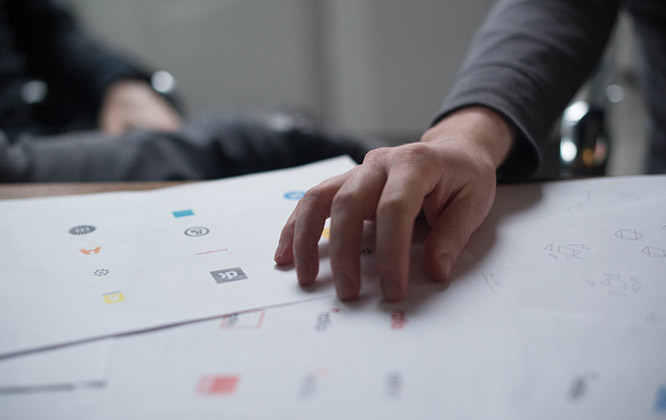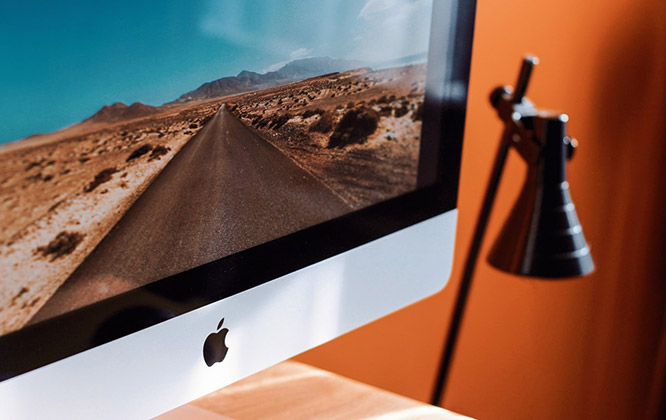
If you are wondering how to make a logo or you are ready to revamp your previous one, starting with the fundamentals of logo design is a great place to start. Here, we go through the different kinds of logos, the principles that make up a logo, and how you can best incorporate your professional logo into your marketing efforts.
Why Is Your Logo Important?
When it comes to building a business, the key to success is all about attracting the right customers who resonate with your brand. Building this relationship with your customer base starts from the moment they first encounter your business’s offerings. So how can you make a good first impression? It all boils down to your logo, which sets the tone for the rest of your brand’s visual marketing elements.
Types of Logos
There are several types of logos used by businesses. Creating a logo ultimately depends on how you want to express your mission. Below, we go through 6 main types of logos you can use to start designing your own.

Lettermarks
Lettermarks are logos comprised of letters, typically the initials of the company. This logo is succinct and powerful when coupled with the right colors and font.
Wordmarks
Wordmarks utilize a business’s name with typography that expresses a business’s essence. Given that the name is clearly visible in the logo, this type of logo has strong business recognition.
Brandmark
A brandmark, also known as a pictorial mark or symbol, is a graphics-based logo. This can be a common item or recognizable item, but it may also be an abstract image created specifically for your business.
Mascot
Mascot logos include a character, usually illustrated, that depicts what your brand is all about. This type of logo is fitting for businesses using video marketing because you can bring the mascot to life.
Emblem
The emblem logo is composed of a font within a graphic or symbol, similar to a badge or seal. As such, the emblem as a more traditional look often chosen by organizations and schools.
Combination
The type of logo combines different types of logos, such as a graphic and business name—or a lettermark and a mascot.
Design Principles
When most people see a logo, it’s easy to see past all of the principles that make up the finished product. However, a well-designed logo has been intricately thought out and is made up of several elements:
- Design aesthetic is the overall design look ad feel of your logo. Different themes include anything from modern and sleek to retro, quirky, or vintage.
- Color can make a huge impact on how your brand is perceived. Some experts, however, recommend starting in black and white to nail down the design first.
- Space refers mostly to how much negative or blank space is within and around your logo. More blank space denotes a more minimalistic feel.
- Typography is one of the most important parts of your logo. Avoiding common typefaces—and opting for more unique ones—can help your logo stand out.
- Visual hierarchy is a means of directing attention to different parts of your logo. It’s critical to emphasize the elements you want the viewer to focus on through color, sizing, and placement.
Incorporating Your Logo into Your Marketing Efforts
Your logo should be incorporated into many of your branding efforts to increase brand recognition and to display a cohesive aesthetic at every opportunity. Below are the 3 avenues through which you can include your logo.
Online
Most websites will include the business logo throughout the site and in the header. You can also include your logo on your email signatures, online invoices, and receipts. If you utilize third-party websites or apps to sell products, include your logo as your profile photo or shop image.

Social Media
Include your logo in all of your social media profile photos, from Facebook and Instagram to Pinterest and Twitter. You can also create posts where your logo is featured as well. Additionally, basing your whole feed off of the colors and aesthetic expressed in your logo is a great way to create a memorable and uniform brand identity for viewers and customers.
Print

A third avenue through which you can interweave your logo is print marketing. Place your logo on your business cards as well as any brochures that you have. If you are creating posters, be sure to include your logo in one of the corners, if not directly in the center.
Unlike through social media or online platforms, using print marketing materials is an opportunity for customers themselves to promote your brand to others. This can happen in the form of t-shirts stamped with your brand or car decals. Even things like packaging can be greatly enhanced when decorated with imprints of your logo through a custom logo stamp.
Creating the perfect logo can feel like a highly involved process, but the outcomes are well worth the diligence. It is a fundamental piece of your branding that will be used time and again in various ways. When executed effectively, a strong, high-quality logo can be the reason why customers remember you and, ultimately, continue to support you throughout the years.